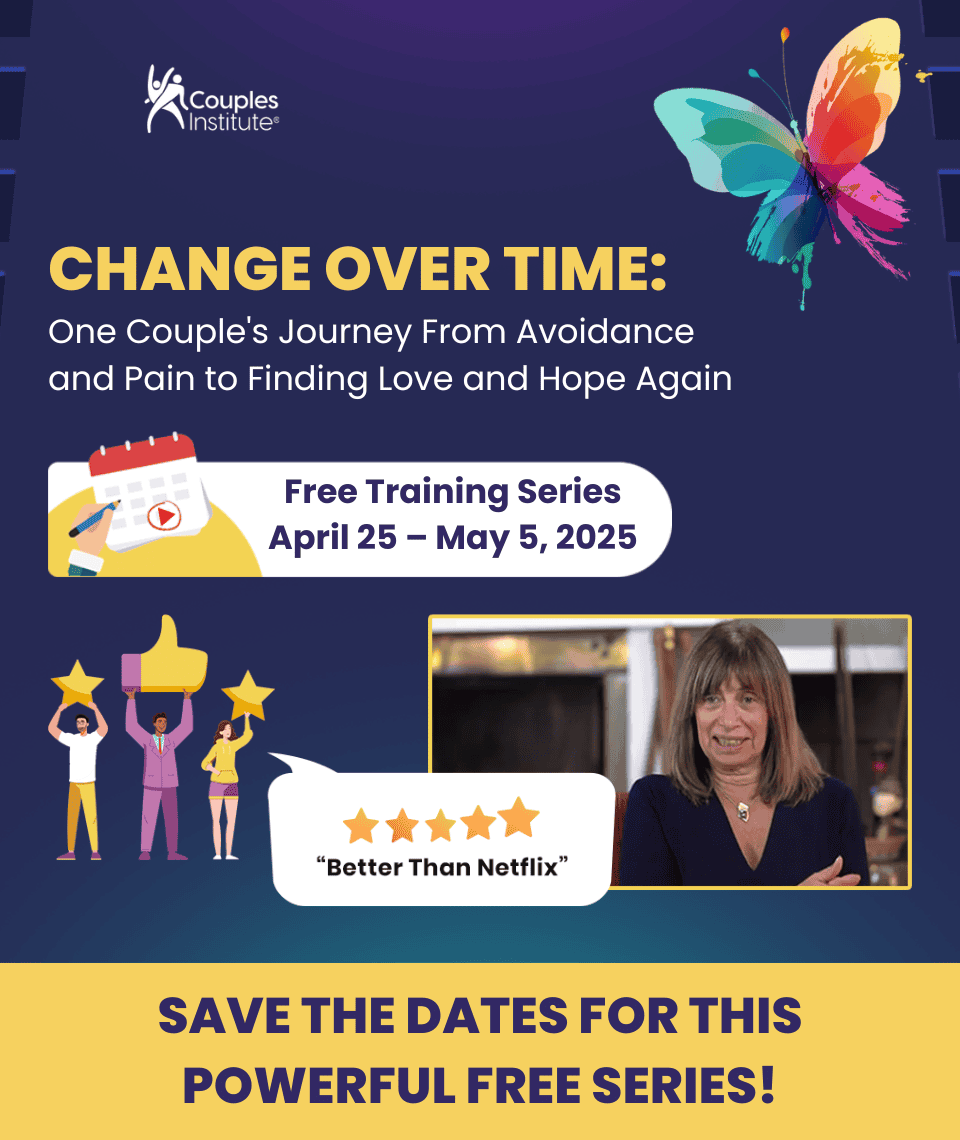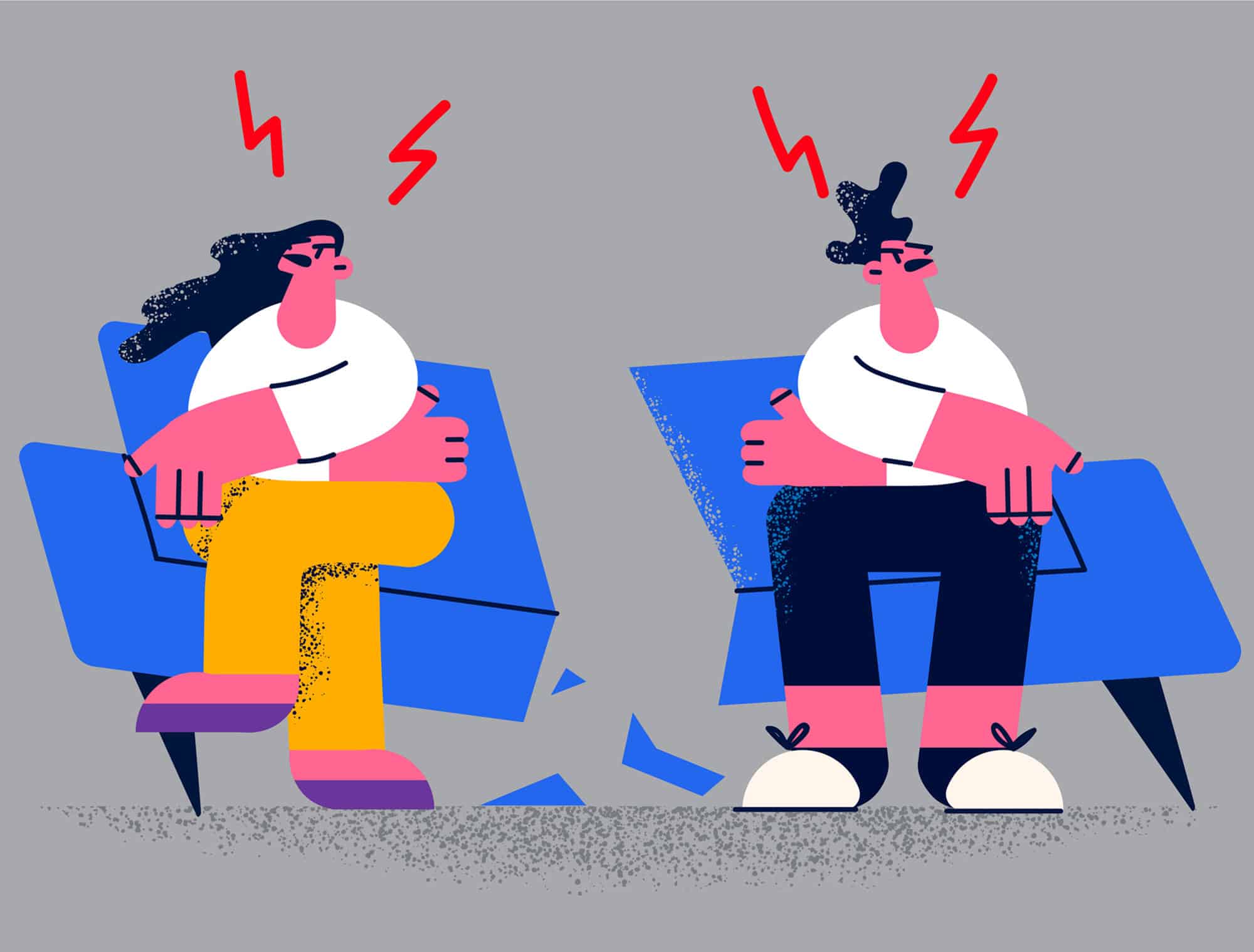As relationships grow and develop, we often see couples who have gotten stuck in a particular developmental stage.
When you approach couples therapy from a developmental framework, you can assess and diagnose each partner’s developmental stage and use stage-specific interventions to help both move into the next stage.
In my experience, I often see couples get stuck in the very first stage of development in one of two ways:
1. Hostile-angry Couples
These are couples whose relationship is characterized by tremendous hostility and competition and, in the worst cases, domestic violence. These couples will typically have no problem fighting right in front of you. And when they describe how they fight at home, you’ll often see competitive, escalating interactions.
Usually the underlying message, which may be present in one or both partners is, “You are not meeting my needs well enough.” Often, these partners expect you to make the other change. Part of the work here is in helping each partner see their own contribution to the dynamic.
2. Conflict-avoidant and Intimacy-avoidant Couples
These couples have so much fear around seeing the ways that they are different or raising issues where they differ, that they may collapse, withdraw, or disengage. You will likely see a high level of dependency, passivity, and reactivity with very little self-initiation between the partners.
They will frequently present for therapy by saying “we are bored.” Or they may experience little or no sexual intimacy. These couples are very fearful of direct engagement with one another.
Sometimes conflict-avoidant partners perceive even the smallest expressions of wants or preferences by the other as a major affront
Two Types of Developmental Differences Between Partners
In addition to seeing couples who are stuck in the Symbiotic Stage, you may see partners who have not reached the same level of differentiation. Two of the most common types include:
1. Symbiotic – Differentiating Relationships
In this dynamic, one partner feels threatened by, or afraid of loss of security in the relationship. This often occurs when the differentiating partner starts to self-define or bring up some of the differences between them. The symbiotic partner wants to maintain the status quo. Here, it’s important to remember that differentiation is normal and it is an active process of defining wants, wishes, and desires while recognizing that those of their partner may be different.
2. Symbiotic- Practicing (or Individuation)
It is also possible to see a couple where one partner works to maintain the symbiosis that the couple had, while the other partner starts to focus on activity independent of the relationship.
In this dynamic, one partner might say that they feel totally smothered while the other claims that the partner who wants space is “not the person they married.”
The task here is to be able to move both partners into a stage where they are actively differentiating. This will involve conflict as they address the ways in which they are truly different. Part of the work involves helping both partners learn to actually hear one another, and discover what is really important to each of them, even when they don’t agree.
There’s so much more that can be said about what interventions look like at each stage.
Understanding stages and thinking developmentally allows you to push couples forward so they can stop triggering and traumatizing each other, repair relationship ruptures, and learn how to tolerate the anxiety of differentiation.
Stay tuned for our next blog posts, where we’ll take a deeper dive into working with hostile-angry couples and conflict-avoidant couples.
ACT NOW
1) I’d like to hear from you. Use the comment link below to share about these dynamics if you have seen them in your work with couples. Do the majority of couples you see fit one of these types?
2) I’ll be presenting more about working with couples who are stuck – at our series Cracking the Code: Confronting Regression and Transforming Trauma in Couples Therapy. It takes place October 2-6, 2023.


 We respect your privacy.
We respect your privacy.




Hello, so far I have read everything you have sent me about the development model in couples therapy and I find it very interesting. I was a professional psychiatrist and professor in my country, Cuba, where I dedicated much of my time to couple, family and group psychotherapy. I knew little about the works of Margaret Mahler and more about Gregory Batenson. The idea of a non-pathologized couple’s life cycle has been very useful and interesting to me and enriches my vision of working with couples. Although my spoken English is not very good, it allows me to understand it through reading. Thank you for giving me this possibility. I enjoy when people passionately carry out their profession.
I think you’re very well spoken!